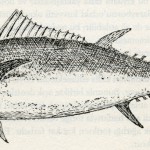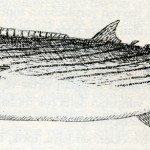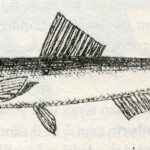A text by Tangör Tan from the pages of the last issue of the New City Reader “Fish”
Photos: Courtesy of Aras Press ”Fish and Fishery in Turkey”, Karekin Devedjian, a re-edition of the 1926 publication, © 2006
Fisheries policies since the beginning of the 20th century was modeled on a holistic perspective as was the approach on civil society organizations, international politics, individual initiatives and state of the economies. Hence as this modeling did not inhibit the exploitation of resources the outcome resulted in extinguishing of the existence of different nations, origins and communities.
Fisheries were regulated on relations of the political and economic sovereignty between the developed and developing 3rd world countries and were overlooked amongst other capitalist agriculture policies. As the main motive is to profit neither the small scaled local fish/eries nor the preservation of culture originating in centuries by fishing will be treated as an important issue in the developing 3rd world countries. The increase of capital as a result of privatization of the food resources is eradicating the accumulated local culture.
The brutal whale hunting of today is being banned. Using vessels equipped with latest technology and instruments whales are being hunted, killed, skinned, teared into pieces and gallons of spilled blood is tossed back into the sea. In a couple of hours…hundreds of them…at the same time! No need to chase a whale for weeks as was depicted in Melville’s Moby-Dick thanks to satellite navigation. Hunters under the guidance of supranational companies, provide for the needs of human beings in spite of exploitation of resources, environment, and culture.
Contrary to this, the Lamakera and Lamalera villages of Indonesia base their livelihood and culture solely on whale hunting. People living in these villages spend their days to hunt the ocean’s largest creature using harpoons small wooden boats of their own making and their bare hands depending on rituals and traditional methods handed down from father to son for centuries. The villagers preserve the fine balance of the life cycle between the prey and the sea. In the meantime the latest Japanese fishing vessels carry on reducing the number of whales which consequently affects and changes the hunting rituals of Lamaleraian villagers. The hunt runs of the villagers’ decrease every year in accordance with the decrease of the number of whales, thus leading to a vicious circle. As a result a culture comes under a threat of extinction and the gained knowledge faces the condition of not being transferred to future generations. Whale hunting can be completely banned; this could be a likely solution. Hence this ban will create a deformation in the identities of the local fishermen.
Wagenia natives in Africa hunt the fish from the River Congo for centuries in the most simple and primitive methods. Their culture also faces a threat of extinction as Lamaleraian villagers. The continuous high level of hunting in the Congo River has a significant impact on fish reserves. This influences the lives, ritual and culture of the natives which their livelihood depends directly on fishing. After all, the culture and livelihood shifts to tourism which leads to a deterioration of their culture.
There are efforts on the conservation of fish reserves. Especially severe pressure exerted by non-governmental organizations force the change of the current government policies. People are becoming more aware and are encouraged to consume more flavored, particularly local products. Although positive, these efforts still fall short. No matter all the struggle put forth, all of us still stand as Don Quixote in the face of the capital increase appetite as well as the desire of possession of energy sources by developed states.
Although prohibitions and bans regulate an environment ordinance nevertheless they lead to an extinction of local food and culture of everyday life.











